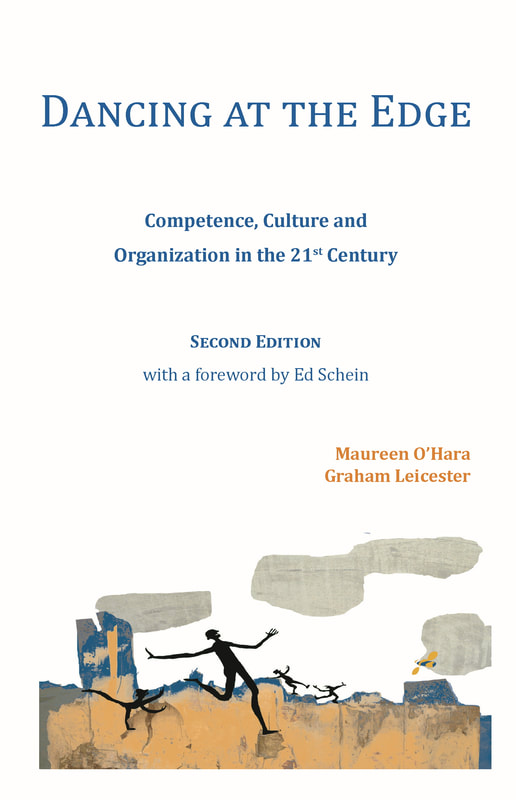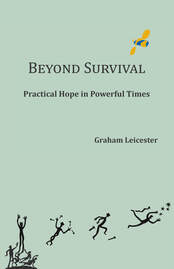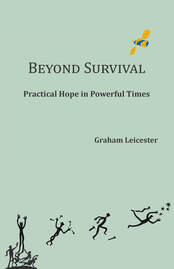|
Published: 2019
List Price: £15.00 Format: Paperback ~ 206 pages Size: 21.6cm x 14 cm ISBN: 978-1-911193-67-8 Tags: Futures, IFF, Competencies Maureen O’Hara & Graham Leicester Contents Reviews Buy the Paperback @ £15
|
Dancing at the Edge
|
Read more:About the authors:
Graham Leicester Maureen O'Hara See the full Contents Read the Introduction Read the Foreword by Ed Schein Read Reviews of the First Edition Readership:This is a book for anyone who thinks about tomorrow’s world:
Related titles:All Intl. Futures Forum titles
See all other titles on: Leadership, Innovation & Organisation Management Theodore Hesburgh, President Emeritus of Notre Dame University, once said that leadership demands certainty: “You cannot blow an uncertain trumpet.” On the contrary, argue Leicester and O’Hara, we must all learn to play the uncertain trumpet like virtuosos.
It is an image that conveys the subtle discipline required of the ‘person of tomorrow’ – an artistry that, they argue, is essential to restore hope in the future. See also: |



